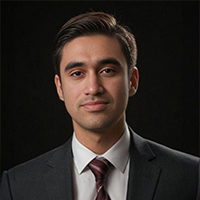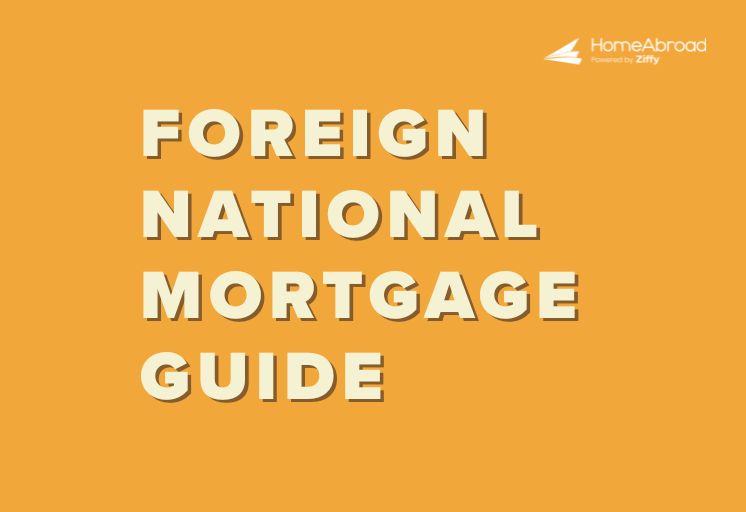Editorial Integrity
Moving to the US can feel overwhelming, filled with unknowns and uncertainties. HomeAbroad editorial team includes certified immigration experts/USCIS nerds who translate complex legalese into clear, actionable moving and visa guides. Rest assured, every article undergoes a reader-centric editorial process to ensure accuracy and reflect current regulations.
If you are a Foreign National who will be moving to the US on a temporary work visa such as H1B or L1 visa, will be studying in a university as an international student, or a US non-resident who plans to open a US bank account without living here (manage financial commitments in the US as a non-resident), this blog is just for you!
Many US Newcomers are unaware that some US banks and credit unions allow Non-Citizens to open US bank accounts without a Social Security Number (SSN) or to do so remotely before arriving in the US.
After reading this article, you will know how to open a US Bank account as a non-citizen US resident or a non-resident, even without a Social Security Number (SSN) or physically setting foot in America. You will also understand how bank accounts work in the US and key things to keep in mind for day-to-day banking.
Table of Contents
Can foreigners open bank accounts in the US?
Yes, both non-resident and non-citizen foreigners can open bank accounts in the US. The US has very open and welcoming banking regulations, allowing almost anyone to open a bank account here.
However, the specific process may vary slightly from bank to bank, so it’s always best to call ahead or visit the bank’s website to get specific instructions. In general, you’ll need to bring identification, proof of address, and an initial deposit.
For identification, a passport is usually sufficient. If you don’t have a Social Security number, most banks will be able to give you an ITIN (Individual Taxpayer Identification Number), which will allow you to open an account. Once you have all the required documents, opening an account is relatively straightforward and can be done in person or online.
What are the benefits of opening a US Bank Account remotely for Non-citizens before arriving in the US?
Some US banks and financial institutions that focus on international clients allow US Non-citizens to open a personal bank account without an SSN or to do so remotely before arriving in the US.
Once you obtain a work visa, such as an H1-B or L1, an international student visa, such as an F1 for university admission, or any other type of valid US residency status, these US banks will allow you to set up an account without physically being in the US.
In this case, you can open a US bank account online before arriving in the US, either through an online process or a video conference appointment.
7 Benefits of opening a US Bank Account as a non-citizen in advance of your arrival in the US:
- Foreign nationals can avoid incurring high banking fees for international wire transfers and currency conversion by opening a US bank account online before arriving.
- You can use your US Bank personal account to set up utilities (electricity, gas, water, and phone) or to pay for other expenses (rent, university fees, etc.) in advance.
- Most of these banks will issue a virtual debit card for immediate use, which can also be used for US online shopping and for paying other merchants via services like Apple Pay, Google Pay, and Samsung Pay.
- You can link your US Bank personal account to P2P (peer-to-peer) payment services like PayPal, Venmo, and Zelle, which will make moving to a new country much easier.
- Opening a bank account in the US will generally be cheaper than using a prepaid travel card, such as a forex card.
- Some Banks that focus on international customers will open a credit card account and your US Bank account without requiring an established US credit history. In addition, it will help you build your US credit score (FICO), an essential part of building your financial life in the US.
- Funds in your US Bank account are insured by the FDIC (Federal Deposit Insurance Company) up to $250,000.
What is the process to open a bank account in the US as a non-citizen or a non-resident foreign national?
The US bank account-opening process will differ depending on your US residency status. The following are the processes to open a US bank account based on your residency status:
How to open a bank account for current US non-residents who plan to move to the US on a work or student visa?
For non-residents who are currently living abroad and plan to move to the US on a work visa, such as an H1-B or L1 visa, or a student visa, such as an F1 or J1 visa, the US bank account opening process can be done in two ways:
1. Apply Online with Financial Institutions focused on international customers and US Newcomers
You don’t need to be in the US, have an SSN (Social Security Number), or be a US citizen when you apply for your US Bank account as a foreign national. However, you may need to provide a US address to receive your physical debit card.
While completing your application online, you will need the following documentation:
You might also need documentation to validate your name, current US address, date of birth, etc. In some cases, the financial institution may request a secure video call to confirm a few personal details, validate your passport, and take a selfie for your photograph. In most cases, you can open your US bank account on the same business day.
2. Apply through an International US Bank’s Global Branch
Some International Banks can help you open an overseas account in the US through their bank branch in your home country. The financial institution may request additional documentation, such as a US visa, a Passport, or other identification documents.
Using the services of an international bank can help you open a bank account before arriving at your destination.
In addition, you can view your worldwide accounts in one place, enable instant money transfers between your global accounts (in the US and your home country), and even help transfer your credit history to your new destination.
How can a US non-resident open a bank account in the US?
If you plan to open a bank account in the US without living here, some international banks can help you if you meet specific non-resident criteria, such as:
If you meet any of the criteria above, you may be able to open a bank account as a non-resident without living here to manage your financial commitments in the US.
You’ll need to provide supporting documentation as evidence that you meet the criteria above.
How can a non-citizen US resident open a bank account in the US?
Foreign Nationals who are US residents and have a valid SSN can usually finish the bank account application process online with most major US banks, just like any other American citizen.
This is because they are considered US residents for tax purposes. Therefore, resident foreign nationals might not need financial institutions focused on immigrants or US newcomers; however, you might still find it beneficial to work with financial institutions specializing in international customers’ financial needs.
As a resident foreign national, you might need the following documents to open your bank account:
Understanding your US Bank Account as a Non-citizen
The most common US bank accounts are checking and savings accounts, and you’re likely to open one of these as your first bank account in the US as a foreign national.
Checking accounts work like current personal accounts in other countries and provide services like:
Savings accounts are designed for saving money rather than for day-to-day transactions. They let you put some cash away for later and earn interest on your savings. However, savings accounts usually have limitations, such as how often or how much you can withdraw at any one time.
Checking Account vs. Savings Account
Checking Account | Savings Account |
|---|---|
Generally, no limits on withdrawals | A limited number of withdrawals |
Minimal or no interest | Earn interest on your savings |
Able to make direct payments with checks, debit cards, and account information | Able to make direct payments with your account information, subject to your withdrawal limits |
What are the most common checking account fees in the US?
Here are the most common checking account fees in the US that foreign nationals should keep in mind:
Foreign Bank Accounts
International accounts are available from banks with a global presence. This can be a valuable option for foreigners without a US address. You can open a US bank account from your native country, eliminating the need to fly to the United States first. Most banks offer web-based services that allow you to open a bank account from the comfort of your own home.
HSBC, Charles Schwab, Citibank, and TD Bank are among the leading banks with a global presence in the United States and beyond. Citibank, with operations in more than 30 countries, may have the broadest reach of the four.
The following are some of the most common prerequisites for creating an international bank account:
Again, the regulations can vary by country and bank. Before opening an account, double-check the requirements with your home bank.
These overseas accounts aren’t for everyone, despite their benefits. International bank accounts, for example, often require substantial initial deposits, which can reach $100,000. You’ll be charged monthly. You’ll also need to keep a high minimum balance.
What are some key things to keep in mind for day-to-day banking as a foreign national in the US?
The US banking system might seem very different from what you are used to in your home country, and there might be some surprises when it comes to fees or technology.
The following are some of the critical things to keep in mind:
Can I open a US bank account without a Social Security number?
Yes, it is possible to open a US bank account without an SSN. This can be done by using an Individual Taxpayer Identification Number (ITIN). An ITIN is a nine-digit number issued by the IRS to individuals who are not eligible for a Social Security Number.
To open an account with an ITIN, you will need to provide the bank with proof of your identity, such as a passport or driver’s license. You may also be required to provide evidence of your current address, such as a utility bill.
Some banks and credit unions will accept a passport number and country of issuance, an alien identification card number, or another government-issued ID number if you don’t have an SSN or ITIN issued by the US government.
Credit unions and banks that don’t require a Social Security Number to open an account
Here are some banks and credit unions that don’t require you to have an SSN to open an account:
Large, mainstream banks such as Bank of America and Chase typically demand roughly two pieces of documentation and proof of a valid US street address. Also accepted are ITINs.
Conclusion
US Bank Accounts for Foreign Nationals can be a great way to manage your US spending while abroad. However, there are some key things you should know before opening one of these accounts.
Make sure you investigate the different fees and requirements at various banks or credit unions and what services may or may not be offered depending on where you live, work, travel, or conduct business in the US.
To avoid any surprises with US banking, we recommend that all foreign nationals open a bank account before arriving in the US.
This will ensure they are well prepared to transition to a new country and remove the added stress of managing finances during an already stressful move.
Frequently Asked Questions
Can a foreigner open a US bank account without an SSN?
Yes, a foreigner can open a US bank account without an SSN. In most cases, you’ll need to provide additional documentation such as a passport, visa, and proof of residency. You may also be required to open a business bank account rather than a personal account. However, it is possible to open a US bank account without an SSN, and doing so can offer numerous benefits such as access to credit, convenience, and security. Finally, some banks may be willing to open an account for a foreigner without an ITIN or EIN if the individual provides other documentation, such as a driver’s license or a utility bill.
Can a non-US resident open a bank account?
Yes, non-US residents can open a bank account in the US.
The account-opening process may differ depending on whether the non-resident plans to move to the US shortly or wants to open a US bank account as a true non-resident to manage financial commitments in the US.
Please refer to this section in this blog for details.
Can a non-citizen open a bank account in the US?
Yes, US non-citizens can open a bank account in the US.
US non-citizens include US permanent residents (green card holders) and US visa holders, such as temporary workers on H-1 B, L-1, etc., or international students.
Please refer to this section in this blog for details.
How can international students open a bank account in the US?
Most US Banks will require international students to provide a combination of documents, including their passport with a visa, an I-20, proof of residency, and a US address.
However, international students may also open a US bank account remotely from their home country. Please refer to this section in this blog for details.
Can a foreigner open a bank account in the US remotely?
Yes, a foreigner can open a bank account in the US remotely without an SSN, even before arriving in the US.
Can I open a bank account with a foreign passport?
Yes, US non-citizens and non-residents can use their foreign passports to verify their identity when opening US bank accounts.
Where Can I Open a Bank Account Without an SSN?
Among the financial institutions that accept undocumented immigrants are Wells Fargo, PNC, US Bank, BMO Harris, Alliant Credit Union, Bank of America, HSCB, and TD Bank.
Can I get a checking account in the US without a driver’s license?
Yes, it is possible to get a checking account in the US without a driver’s license. However, there are some caveats. For instance, you may need to provide other forms of identification, such as a passport or birth certificate. In addition, you may need to show proof of address, such as a utility bill or lease agreement.











![Can Foreigners Buy Property in the USA? [2026]](https://homeabroadinc.com/wp-content/uploads/2021/07/CanForeignersBuyinUS.jpg)










